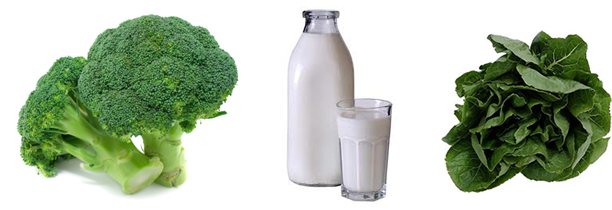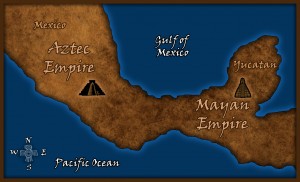 Those little floating seeds that you see in your Drink Chia! pack quite a powerful punch! Chia seeds (yes, the same seeds from the famed Chia Pets popularized in the 1980’s) are loaded with good-for-you nutrition. Check out some of the benefits of chia seeds below:
Those little floating seeds that you see in your Drink Chia! pack quite a powerful punch! Chia seeds (yes, the same seeds from the famed Chia Pets popularized in the 1980’s) are loaded with good-for-you nutrition. Check out some of the benefits of chia seeds below:
![]()
Hydration
Chia seeds have amazing absorptive properties. In fact, those tiny seeds can absorb 9 to 12 times their weight in water. When you consume them, your body is getting prolonged hydration and retaining important electrolytes.
![]()
Endurance
Our chia seeds pretty much come straight from the farm and into your bottle of Drink Chia! Because they are a whole, unprocessed food, our bodies break down these little chia dynamos slowly, balancing our blood sugar levels and giving us endurance for the long haul.
![]()
Healthy Heart
Chia seeds not only contain natural antioxidants, but they also hold the highest known concentration of plant-based Omega-3 essential fatty acids, which studies show are important to the health of our hearts and other vital organs.
![]()
Brain Power
As they are for the heart, Omega-3 fatty acids are important to brain health and function. Studies suggest they can improve nerve function and alleviate symptoms associated with a number of conditions, such as OCD and ADHD.
![]() Have Fun!
Have Fun!
OK, while technically not a proven nutritional fact, we think that having fun is a key ingredient to living a healthy and active lifestyle. The unique texture that our chia seeds provide make Drink Chia! as fun to chug as it is good for you!
 In a one-ounce (28 g) sample, dried chia seeds contain 9% of the Daily Value for protein (4g), 13% fat (9g) (57% of which is ALA) and 42% dietary fiber (11g), based on a daily intake of 2000 calories. The seeds also contain the essential minerals phosphorus, manganese, calcium, potassium and sodium in amounts comparable to other edible seeds, such as flax or sesame. Nutritional Data Website
In a one-ounce (28 g) sample, dried chia seeds contain 9% of the Daily Value for protein (4g), 13% fat (9g) (57% of which is ALA) and 42% dietary fiber (11g), based on a daily intake of 2000 calories. The seeds also contain the essential minerals phosphorus, manganese, calcium, potassium and sodium in amounts comparable to other edible seeds, such as flax or sesame. Nutritional Data Website
![]()
Omega-3 is an essential fatty acid that is vital for optimal body health and function. Chia seeds contain 8 times more Omega-3 than salmon.
Magnesium is involved in the synthesis of protein, and is an important co-factor in more than 300 enzymatic reactions in the human body, many of which contribute to the production of energy. While calcium impacts muscle contractions, magnesium balances that effect and relaxes muscles. Chia seeds contain fifteen times more magnesium than broccoli.
Calcium is the chief supportive element in bones and teeth, and its salt makes up about 70 percent of bone by weight, providing your bones with their strength and rigidity. Chia seeds provide five times more calcium than milk.
Iron is an essential mineral and an important component of the proteins involved in oxygen transport and metabolism. When iron is low, oxygen consumption slows down. Chia seeds contain three times more iron than spinach. Comparing iron content of chia seed with other traditional iron-rich sources products, chia seed has 1.8, and 2.4 times more iron per 100 grams of edible portion than lentils and beef liver.

The anti-oxidant properties of fruits and seeds help prevent cellular damage from free radicals. Free radicals are natural by-products of oxygen metabolism that may contribute to the development of chronic diseases such as cancer and heart disease
You know that blueberries and several exotic fruits (that aren’t always in season) have anti-oxidants, but did you know that chia is extremely high in anti-oxidants too? These helpful substances are what makes the Chia Seed stay fresh for so long. At room temperature, they’ll stay fresh and ready to eat for over two whole years! And that’s all without a single chemical or preservative. This amazing ability is not found in other seeds like flax or sesame, because those seeds don’t have the same rich anti-oxidant content. Chia seeds have three times more anti-oxidants than blueberries.
Protein is an important component of every cell in the body. Hair and nails are mostly made of protein and the body uses protein to build and repair tissues. Protein is also used to make enzymes, hormones, and other body chemicals. Protein is an important building block of bones, muscles, cartilage, skin, and blood. Chia seeds have five times more protein than kidney beans. Chia seed possesses 23 percent protein, this is higher than other traditional cereals such as wheat(13.7 %), corn(9.4 %), rice(6.5 %), oats(16.9 percent) and barley(12.5 %).
Fiber adds bulk to your diet and makes you feel full faster, helping you control your weight. Fiber helps digestion and helps prevent constipation. You can get fiber from whole grains, beans, nuts, fruits and vegetables.. Comparing the fiber content of chia, it has 1.6, 2.3, 2.6, 8.3 and 9.8 times more fiber per 100 grams of an edible portion than barley, wheat, oats, corn and rice, respectively. Chia seeds contain 25% more fiber than flax seeds.
Potassium is essential for the proper functioning of the heart, kidneys, muscles, nerves, and digestive system. Chia seeds have twice the potassium of bananas.

Phosphorus is an essential mineral that is required by every cell in the body for normal function. Next to calcium, phosphorus is the most abundant mineral in the body. These 2 important nutrients work closely together to build strong bones and teeth. Chia seeds have eight times more phosphorus than whole milk.
Zinc is one of the minerals that are important for your body to stay healthy. Your body uses minerals for many different jobs, including building bones, making hormones and regulating your heartbeat.
Manganese is a mineral that is found in several foods including nuts, legumes, seeds, tea, whole grains, and leafy green vegetables. It is considered an essential nutrient, because the body requires it to function properly.
Selenium is a trace mineral that is essential to good health but required only in small amounts. Selenium is incorporated into proteins to make selenoproteins, which are important antioxidant enzymes. The antioxidant properties of selenoproteins help prevent cellular damage from free radicals.

 Despite their relatively new-found popularity in modern-day nutrition circles, chia seeds have been sought for their unique nutritional properties for millenniums. This ancient food was revered by the Mayans and the Aztecs for its ability to enhance strength, energy, and endurance in extreme desert and jungle conditions. Similarly, Native American Indians would eat chia seeds mixed with water on extreme messaging runs from the Colorado River to the Pacific Ocean. It is no wonder why they called chia the ‘running food’.
Despite their relatively new-found popularity in modern-day nutrition circles, chia seeds have been sought for their unique nutritional properties for millenniums. This ancient food was revered by the Mayans and the Aztecs for its ability to enhance strength, energy, and endurance in extreme desert and jungle conditions. Similarly, Native American Indians would eat chia seeds mixed with water on extreme messaging runs from the Colorado River to the Pacific Ocean. It is no wonder why they called chia the ‘running food’.
When the Spanish Conquistadors arrived in South America under the command of Hernando Cortez, their Jesuit scribes noted chia seeds as the third most important crop to the Aztecs, after corn and beans. They also chronicled how chia seeds were revered throughout society, even serving as tributes to be paid to the Aztec nobility. Chia not only served as nutrition to the Aztecs, but it became an integral element of their spiritual culture. Even the name ‘chia’ was part of their symbol for energy and life.
To learn more, check out Austin Zakari’s two articles on the history of chia seeds.

![]()
Among Wall Street’s trading desks and bullpens, chia seeds are becoming the stimulant of choice. Healthier than coffee, cheaper (and obviously more legal) than cocaine, and less juvenile than a 5-hour Energy drink, chia has undergone a total metamorphosis from 1980s punchline to superfood.
![]()
Smaller than—and often compared to—the flax seed, chia is filled with two times more protein than most grains, five times more calcium than milk and one of the highest levels of omega 3 and 6 fatty acids. Let’s not forget it’s full of soluble fiber, potassium and antioxida
![]()
Chia is the highest plant source of Omega-3s. It has tons of fiber, and even a lot of antioxidants and minerals. It’s 20 percent protein — which is, compared to wheat, or even soy, incredibly high.